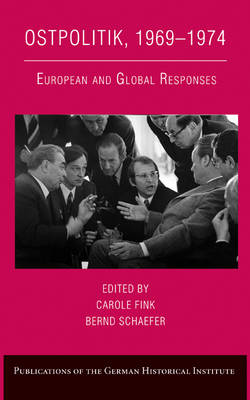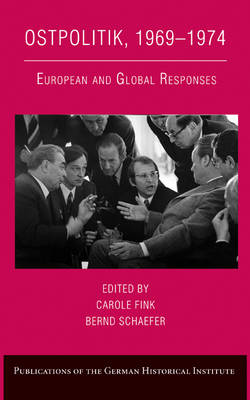
- Afhalen na 1 uur in een winkel met voorraad
- Gratis thuislevering in België vanaf € 30
- Ruim aanbod met 7 miljoen producten
- Afhalen na 1 uur in een winkel met voorraad
- Gratis thuislevering in België vanaf € 30
- Ruim aanbod met 7 miljoen producten
Zoeken
Omschrijving
Recent studies of the Cold War transcend a narrow focus on four decades of superpower rivalry, recognizing that leaders and governments outside of Washington and Moscow also exerted political, economic, and moral influence well beyond their own borders. One striking example was the Ostpolitik of Chancellor Willy Brandt, which not only redefined Germany's relation with its Nazi past but also altered the global environment of the Cold War. This book examines the years 1969-1974, when Brandt broke the Cold War stalemate in Europe by assuming responsibility for the crimes of the Third Reich and by formally renouncing several major West German claims, while also launching an assertive policy toward his Communist neighbors and conducting a deft balancing act between East and West. Not everyone then, or now, applauds the ethos and practice of Ostpolitik, but no one can deny its impact on German, European, and world history.
Specificaties
Betrokkenen
- Auteur(s):
- Uitgeverij:
Inhoud
- Aantal bladzijden:
- 322
- Taal:
- Engels
- Reeks:
Eigenschappen
- Productcode (EAN):
- 9780521899703
- Verschijningsdatum:
- 22/12/2008
- Uitvoering:
- Hardcover
- Formaat:
- Genaaid
- Afmetingen:
- 231 mm x 155 mm
- Gewicht:
- 566 g

Alleen bij Standaard Boekhandel
+ 251 punten op je klantenkaart van Standaard Boekhandel
Beoordelingen
We publiceren alleen reviews die voldoen aan de voorwaarden voor reviews. Bekijk onze voorwaarden voor reviews.







